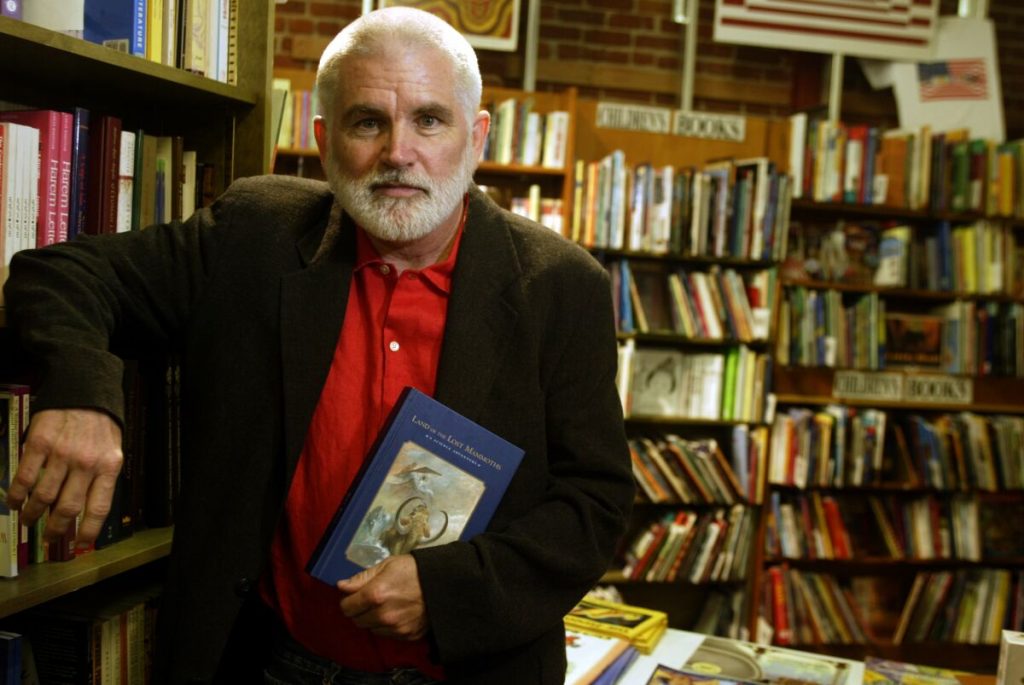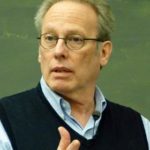Freud tells a story of a man standing still before the entrance to Charing Cross station in central London. Irritated commuters must swerve to avoid him, never wondering why his head is bowed in mourning. He does not see them; his gaze is directed away from the station and toward the Cross after which the station is named. He feels the sadness of the history, hidden in plain sight, of the dear Queen, la chère reine, whose untimely death her husband, King Edward, marked by a series of crosses, the last of which is what is now known as “Charing” cross. The cross has been annexed to the railway station, for which it serves as a marker. The dear queen, la chère reine, has disappeared into the name “Charing”, its original significance now forgotten, except by the solitary mourner struck still by what he cannot forget.
Mike Davis was a descendant of that man. The absences he detected, however, were not those of dead kings and queens, but of the rebels who tried to overthrow them (or their latter-day counterparts). He read the epitaphs written in the day’s detritus in the vacant lots and empty storefronts of Los Angeles, and listened intently for the unheard cries rising from unmarked graves buried beneath laundromats and liquor stores. When he looked at the present, he saw signs, not otherwise recognized as signs, of a past whose forgetting was the necessary condition of the legitimacy of present. Mike felt compelled to read and interpret these signs for us, to show, for example, that a city like Los Angeles, alongside freeways, under suburbs, in cracked concrete slabs that passed for sidewalks, and half-burned houses untouched for years, bears the wounds and scars of mass struggle. The city was to him a kind of fossil record of the cataclysms and near-extinction events that punctuated the history of the resistance and revolt against the established political, economic and racial order. To acknowledge the presence of this past, if only in the ferocity with which it is denied, but also to make us see, feel and begin to understand it, was Mike’s peculiar gift.
I say these things not simply as a reader of Mike’s works, but as someone who drove with him throughout Los Angeles, to demonstrations, picket lines, and meetings. Everyone seemed to know him, and he could give me an exact account of every movement, organization and their leaderships. He was famous for his ability to deliver flawlessly organized impromptu lectures on a seemingly numberless series of topics (I remember in particular a lecture on the history of the Irish Republican Army, a detailed comparison of the movements of slum-dwellers in Tehran and Mexico City, and an overview of theories of urban warfare, circa 1980).
His intellectual abilities, however, in no way prevented him being overcome with rage at the presence of “the enemy,” even when faced with physical danger. On one occasion, he single-handedly attacked a group of Nazis who had arrived to confront a demonstration organized by the Coalition Against Police Abuse. The mere presence of police made him bristle and he did not always refrain from directing strings of obscenities at them. At what would become the historic Justice for Janitors demonstration in Century City (part of Los Angeles) in 1990, Mike arrived dressed in a suit and tie. He told me he wouldn’t be marching with us because he had finally convinced the Mayor of Los Angeles to agree to an interview and couldn’t miss it. He was adamant: he simply could not get arrested. As he stood some distance away, the police launched a brutal attack on the demonstration. Mike became enraged and as he began to hurl obscenities at some police stationed near him, was arrested and taken to the West Los Angeles jail. The mayor later convinced the police to release him so the interview could take place.
Of all the things I learned from Mike, perhaps the most important was that there is no domination without resistance; he always sought to identify the forces engaged in the struggle against exploitation and oppression and to join them. He did this not out of a sense of duty, but because it was simply impossible for him to do otherwise. The fact that he never wavered in his revolutionary Marxism, far from limiting the power of his intellect or the imagination that was part of this power, formed the basis of his creativity as a thinker. He drew his strength from the anti-imperialist and antiracist movements in which he was an active participant.
I think of him now as he must have been in the wildcat Teamster strike of 1970, standing next to the eighteen-wheeler he had parked, alongside so many other trucks, in the middle of the 101 Freeway in Downtown Los Angeles, effectively shutting down one of the most important cargo hubs in the nation. I can see his face beaming with pride at the enormous panorama of workers’ power, already dreaming of the books he would write.











